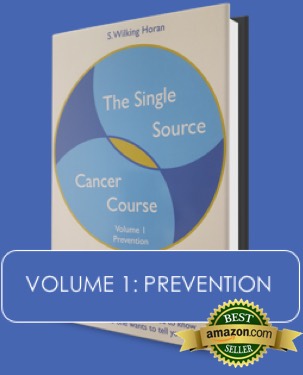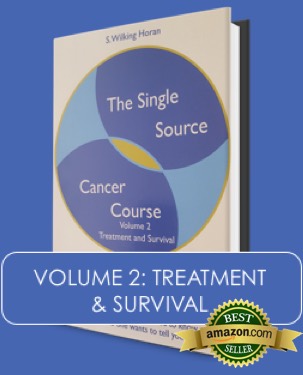 7 MAJOR RISK FACTORS FOR COLON CANCER
7 MAJOR RISK FACTORS FOR COLON CANCER
Hello Everyone – It’s #Factual Friday and the first week of March – which is COLON CANCER AWARENESS MONTH. So, appropriately, we’ll be discussing the third most common cancer in the United States among both women and men – Colon Cancer.
Not to be confused, this cancer also is referred to as Colorectal Cancer. This is because the large intestine, which is about five feet long, connects to the rectum, which is about five inches long. And, it’s not really clear where one ends and the other begins. Accordingly, the term colorectal can be just a bit more precise in describing cancers that occur in this part of the body.
Now, most of you know that my first cancer was colon cancer. I was diagnosed at an age considered “too young” for the disease and I was a healthy, slim, non-smoking vegetarian! I was completely unprepared for the news and had no idea the disease ran in my family and that I was at risk. I don’t want anyone to be surprised like I was, so let’s outline SEVEN MAJOR RISK FACTORS for COLON CANCER right now!
- AGE: As with most cancers, our risk for developing the disease typically increases as we grow older. Colon cancer is found most often in individuals over the age of 50.
- GENDER: This cancer is the third most common among both women and men. Women, however, have a higher risk for developing cancer of the colon while men have a higher risk for developing cancer of the rectum.
- LIFESTYLE: Individuals who use tobacco or abuse alcohol have an increased risk for this cancer. Similarly, individuals who don’t exercise enough are at greater risk. Also, being overweight will contribute to one’s risk. So, a healthy diet with less fat and more fiber will help prevent weight gain and decrease one’s risk for colon cancer.
- GEOGRAPHY & RACE: The highest rates for this cancer are found in the industrialized nations of the world. In large part, this is probably due to the fact that these nations typically have diets that are high in fat and low in fiber. In contrast, the lowest rates are found in South America, Africa and Asia. Moreover, colon cancer is most common in African-American women and men – and least common in Hispanics, Asian-Americans, Native Alaskans and Native Americans.
- DIABETES: Unfortunately, individuals who have diabetes also have an increased risk of 30 to 40 percent for developing colon cancer as well.
- PERSONAL HISTORY: Women who have a history of breast, ovarian or uterine cancer share a higher risk for colon cancer. Also, women and men who have a history of colon polyps, ulcerative colitis or Crohn’s disease have an increased risk for this cancer.
- FAMILY HISTORY: Again, heredity is a powerful force in determining who is at risk for developing this disease. Anyone who has a first-degree relative – and we know this means a parent, sibling or child – who has had colon cancer also has an increased risk for the disease. Anyone with a family history of hereditary non-polyposis colon cancer (HNPCC), MYH-associated polyposis or familial adenomatous polyposis also has an increased risk for colon cancer.
So, there we have 7 of the major risk factors of which we should all be aware. In my case, colon cancer ran in my family – something I did not know until after I was diagnosed. And, I can’t stress enough the importance of finding out everything you can about your family history. Not just for colon cancer, but for every other cancer as well.
And remember, should you find that this particular disease runs in your family, consult with your doctor about your options. If you have an increased risk, regular screening procedures will probably begin at a younger age than most AND they will probably be conducted more frequently. This is because genetically influenced cancers typically occur at a younger age in the life of an at risk individual. Believe me, this I know from personal experience.
But remember, half the battle is understanding the risks of a particular cancer. Once we know what the major risks are, we can determine our personal risk. And from there, we can develop a preventative strategy to protect our health and warn of potential trouble.
Also remember, our first defense against any cancer is prevention. And in order to help prevent cancer, we need to properly screen for cancer. The really good news here is that with proper screening, colon cancer is one cancer that literally can be prevented with the help of one screening procedure in particular – the colonoscopy.
So, later this month we’ll be discussing this procedure – one with which I am intimately familiar 🙂 It’s a very appropriate topic for Colon Cancer Awareness Month and the information we’ll be sharing might just save your life!
Once again, thanks for joining me Everyone. Until next time stay in GOOD HEALTH and . . .
TAKE THE COURSE AND TAKE CHARGE!
TIME FOR REVIEW:
SINGLE SOURCE CANCER COURSE, Volume 1, Chapter 11: Colorectal Cancer.



Leave a Comment